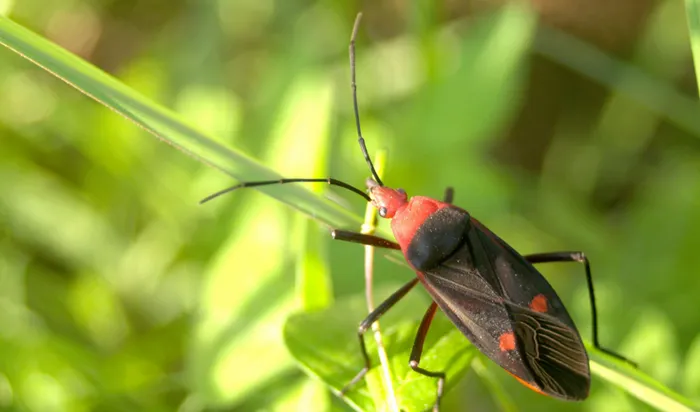Environmental focus: Where have all the bugs gone?

Picture: icon0.com - Insects also play a significant role in medicine and nutrition.
By Dominic Naidoo
I recall, rather vividly, childhood road trips from Durban to the star-spangled skies of the Drakensberg mountains, up the coast to St. Lucia’s sparkling estuaries and all the way down to the rolling hills of the wild coast.
By the end of all these trips, the windscreens, grill, front bumper and side mirrors would be a smorgasbord of splattered bugs, wings of all shapes, sizes and colours being the only remnants of what they used to be.
I frequently commute on the M4 highway, north of Durban. The road is flanked on either side by coastal forest and bush for around 40 km. After some low-tech, amateur research, I found that, after driving a total of 400 km, my front bumper and windscreen had only a measly 32 bugs splats, most around the headlights, presumably tiny kamikaze moths.
This equates to 1 bug for every 12.5km. Where have all our bugs gone? Insects are a vital part of our ecosystem, playing an essential role in pollination, nutrient cycling, and serving as a food source for other organisms. However, imagine a world without insects; what would happen?
The loss of insects would have a severe impact on agriculture. Insects play a crucial role in pollination, with bees being the most well-known pollinators. Without insects to pollinate crops, food production would be severely impacted.
According to a study conducted by the University of California, Berkeley, the global economic value of pollination by insects is estimated at $235 billion per year. Without insects, we would not only lose the economic benefits of crop pollination but also face a food crisis.
Insects also play a crucial role in nutrient cycling. Decomposition of organic matter is a fundamental process that is facilitated by insects, particularly beetles and ants. These insects break down dead plant and animal material, releasing nutrients that are essential for the growth of plants.
Without insects, nutrient cycling would be significantly impacted, leading to a decrease in soil fertility and plant growth. This, in turn, would have a cascading effect on the entire ecosystem, affecting the animals that rely on plants for food.
Insects are also an immensely essential food source for other organisms, particularly birds, reptiles, and amphibians. Insects are an easily accessible source of protein and other nutrients for these animals.
Without insects, these animals would have to find alternative food sources, which may not be as readily available or nutritious. This could result in a decline in the populations of these animals, leading to an unbalanced ecosystem.
Changes in the abundance and distribution of insects can provide insight into the health of ecosystems. For example, a decline in the population of a particular insect species may indicate pollution or habitat destruction.
Without insects, we would lose this valuable indicator of environmental health, making it more difficult to monitor and address environmental issues.
Insects also play a significant role in medicine. Many drugs used in modern medicine are derived from compounds found in insects.
The anticoagulant drug, hirudin, for example, is derived from the saliva of leeches, and the painkiller, prialt, is derived from the venom of cone snails.
Without insects, we would lose a valuable source of potential new drugs, making it more challenging to develop new treatments for diseases.
Insects also provide a valuable service as scavengers, breaking down dead plant and animal material. Without insects, the rate of decomposition would slow down, leading to an accumulation of dead matter, which could become a breeding ground for disease-causing organisms.
This could have significant implications for public health, particularly in developing countries where access to adequate waste disposal facilities may be limited.
The loss of insects would have significant cultural and aesthetic impacts. Insects have played a significant role in human culture and art throughout history. From ancient Egyptian scarabs to contemporary insect-inspired fashion, insects have been a source of inspiration for artists and designers.
In addition, many people enjoy observing and studying insects, whether it be through birdwatching or insect collecting. Without insects, we would lose this source of cultural and aesthetic inspiration, as well as the joy that comes from observing and studying the natural world.
A world without insects would have severe consequences for both the environment and human society. We rely on insects for pollination, nutrient cycling, food, medicine, and as indicators of environmental health. Without insects, we would face a food crisis, a decline in soil fertility and plant growth.
Next time you see a bug, leave it be, they play a more important role in the ecosystem than you and I.
Dominic Naidoo is an environment activist and writer.
This article is original to the The African. To republish, see terms and conditions.